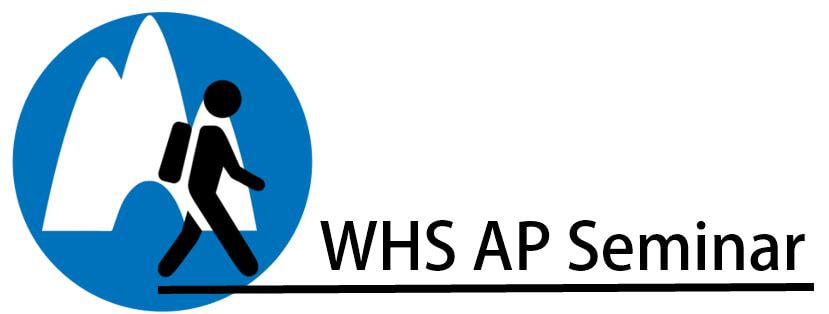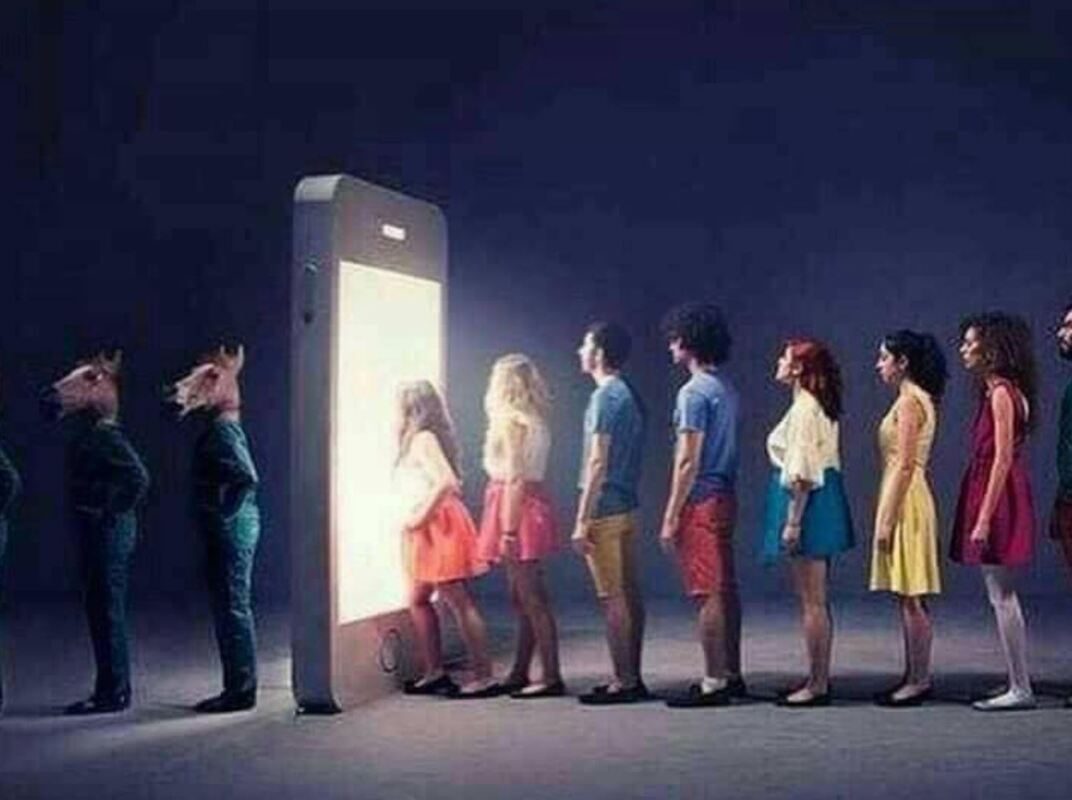|
Do you have a smartphone with you right now? While most people today would answer yes, this was not the case 20 years ago. New technology has been rapidly introduced into the world whether it is wanted or not. Some may argue that this technology is improving the quality of life and making the world a better place, but there is a lot more to it. Though technology can increase efficiency, productivity, and sometimes even safety, the consequences outweigh the benefits. According to former senior researcher for Pew Research Center, Mary Madden, and Pew researcher Sydney Jones from their article “Networked Workers”, “96% of employed Americans use the internet, email, or a cell phone ‘in some way’” (Greenwood). From work to social media, today’s world revolves around technology. The impact of modern technology is increasing every day as new technologies are developed. With new technology comes higher expectations on students and working adults. The article “Networked Workers” also reveals, “of the 96% of workers who use communications technology in some way, nearly half say they are expected to work more hours and deal with more stress,” (Greenwood). Though its impact is significant, stress is not the only downfall of technology. The consequences of technological proliferation that pose the greatest challenges to society are loss of jobs, invasion of privacy, and potential harm to physical and mental health.
Technological proliferation has taken and will continue to replace a number of human jobs with machines. While technology has allowed for cheaper and more efficient work, this has resulted in more and more humans are finding themselves unemployed. Jobs from taxi drivers to factory workers are being replaced by technology. According to the Los Angeles Department of Transportation, taxi trips in Los Angeles, California declined by 30% from 2012 to 2016 since the early 2013 introduction of Uber and Lyft (Nelson). The idea of a self-driving car could potentially be safer and reduce crashes, but it has its downfalls. According to former staff reporter and foreign correspondent for The Wall Street Journal, John Miller, from his article published in America, “the most common jobs for American men are behind the wheel” (Miller). Many Americans make a living off of driving taxis and trucks. The ridesharing company Uber currently has 3 million drivers globally. (Much Needed) If all forms of ridesharing and human-driven vehicles were eliminated and replaced by self-driving cars these three million people plus taxi drivers, truck drivers, and delivery people would lose their jobs. A.I. ethicist at Carnegie Mellon University, Tae Wan Kim, talks about technology destroying jobs in Miller’s article. He says, “A.I. ethicists say the current technological revolution is different because it is the first to replicate intellectual tasks. This kind of automation could create a permanently underemployed class of people,” (Miller). Instead of trying to decrease the unemployment rate, technology is causing it to climb. The more new technology created, the more jobs can be replaced. Blake Morgan, contributor to Forbes and the Harvard Business Review, has written multiple articles on the negative effects of technology. In her article “Robots Will Take Our Jobs And We Need A Plan”, she presents research from McKinsey Digital. The research shows that, “45% of current jobs can be automated,” (Morgan). Automated jobs are beneficial to large companies because they do not have to pay robots like they would humans in order to get the work done. As long as the availability of technology continues to increase, it will continue to take the jobs of humans. In addition to decreasing job availability, new technology has allowed for new ways to invade privacy. Companies like Netflix use the data they track in order to improve the quality of experience for their users and make their product catered to specific individuals. While it may sound beneficial, it is a little unsettling to think that they’re tracking everything one watches. In another article written by Morgan, “What Is The Netflix Effect?”, she says, “Netflix grows its number of subscribers by around 10% a year and now has an estimated more than 59 million subscribers in the U.S. alone” (Morgan). Although companies are improving their experience for users, it makes one wonder what other data they could be collecting without anyone knowing. Netflix is not the only company doing so. In Miller’s article, he mentions the effect A.I. collecting data on people could have in the future. He says, “in one dystopian scenario, a government could deny health care or other public benefits to people deemed to engage in ‘bad’ behavior, based on the data recorded by social media companies and gadgets like Fitbit” (Miller). While these devices may help people keep track of their health, who is to say that the data collected will not be used against them later? In addition to compromising private health data, using technology allows hackers a way into the private lives of those using self-driving cars. According to an article written by Digital Trends, “maps can be remotely manipulated by crafty hackers” (Digital Trends). As long as technology is being used, nothing is safe from hackers. Private lives are becoming less and less private as new technologies come about. The most unsettling consequence of the increase in technology in today’s world is the potential physical harm it can bring to humans. Technologies such as power plants that help run cities of the world could also cause their downfalls. When a tsunami caused by a massive earthquake in Japan damaged nuclear technology, nuclear waste was leaked into the ocean. The haiku “Lingering Grief” written by Jacquie Pearce won the League of Canadian Poets’ National Haiku Contest. The poem states, “lingering grief.../ a trace of Fukushima/ in the salmon” (Pearce 1-3). The ocean is a major food source for the whole world and this accident potentially poisoned some of it. According to the United Nations, “over three billion people depend on marine and coastal biodiversity for their livelihoods” (United Nations). Using certain technology to attain high efficiency in industries is not worth risking one of the most valued sources of food. More accidents like Fukushima are bound to occur as long as more technology continues to be introduced. Additionally, technology meant to increase safety, such as self-driving cars, can actually increase danger. According to the Digital Trends article, “at a 2013 technology conference in Las Vegas, researchers demonstrated how the computers in driverless cars can be hacked to make them drive erratically and dangerously” (Digital Trends). The more technology implemented into people’s everyday lives, the more opportunity there is for hackers. According to a report written by Janna Anderson and Lee Rainie from Pew Research Center “digital users who have not lived without technology will not know how to cope with utilizing resources outside of solely tech,” (Anderson and Rainie). Kids who are growing up in the world of modern technology do not know any different. They are raised with the ability to hide behind a screen and control virtually every aspect of their lives due to their smartphones. Social settings will become more and more difficult for kids who are not used to the lack of control in the real world. The potential for harm induced by technology will continue to increase in the coming years. The rapid pace at which technology is taking over the world is alarming. Humans are creating things with the hopes of making their lives easier, but in reality, they are inflicting harm upon themselves. Today’s world is so fast-paced that any new technology that offers efficiency will help large industries grow. While industries are growing, jobs that require humans are declining in number. Everything that people do becomes data for companies to use to make more money off of them. Privacy is becoming less and less relevant as virtually all of everyone’s information is somewhere on the internet waiting to be found. The world is putting making money over its own health and wellbeing. As humans become more like machines in the way they operate, their role in the modern world is becoming less important. Machines are becoming more human than humans themselves. Sources: Anderson, Janna and Rainie, Lee. The Future of Well-Being in a Tech-Saturated World.” Pew Research Center, 17 April, 2018. https://www.pewinternet.org/2018/04/17/the-future-of-well-being-in-a-tech-saturated-world/ Digital Trends. “Driverless Cars Will Not Solve the Problem of Road Rage.” Road Rage, edited by Amy Francis, Greenhaven Press, 2014. At Issue. Gale In Context: Opposing Viewpoints, Accessed 17 Aug. 2019. Greenwood, Bill. “Pew reports targeted networked families and workers.” Information Today, Jan. 2009, p. 35. Gale OneFile: Business, Miller, John W. “THE CREEPING ETHICAL CHALLENGES OF ARTIFICIAL INTELLIGENCE: Technology is already bending our perceptions of the world around us.” America, 12 Nov. 2018, p. 20+. Gale One File Religion and Philosophy, https://link.gale.com/apps/docs/A565200790/PPRP?u=mlin_s_weyhs&sid=PPRP&xid=15d24f04. Morgan, Blake. “Robots Will Take Our Jobs And We Need A Plan: 4 Scenarios For The Future.” Forbes, Forbes Magazine, 5 Sep. 2018, https://www.forbes.com/sites/blakemorgan/2018/09/05/robots-will-take-our-jobs-and-we-need-a-plan-4-scenarios-for-the-future/#48feb7136db4 Morgan, Blake. “What Is The Netflix Effect?” Forbes, Forbes Magazine, 26 June 2019, https://www.forbes.com/sites/blakemorgan/2019/02/19/what-is-the-netflix-effect/#1f328 7325640 Much Needed. “Uber by the Numbers: Users & Drivers Statistics, Demographics, and Fun Facts”. Much Needed, 2019, https://muchneeded.com/uber-statistics/ Pearce, Jacquie. “Lingering Grief.” League of Canadian Poets, Canada Council for the Arts. http://poets.ca/2018/02/12/2018-national-haiku-contest-winner-jacquie-pearce
0 Comments
Your comment will be posted after it is approved.
Leave a Reply. |
WHS StudentsThe Journal of Scholarship at WHS is a peer reviewed journal publishing academic works by emerging scholars at Weymouth Middle and High School. Archives
May 2024
Categories
All
|


 RSS Feed
RSS Feed
